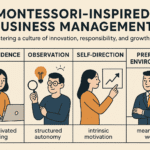
Each individual reading this holds a unique interpretation of what it means to lead a happy, healthy, and productive life.
It is irrelevant where you reside or where you were born, as most people share common desires such as safety, love, and acceptance.
It is crucial to recognize that you, and only you, possess the power to shape the life you aspire to live, filled with joy, well-being, and accomplishments.
Furthermore, despite occasional moments of seeming impossibility, attaining what you long for is indeed feasible.
Your aspirations include having sufficient time, financial resources, good health, and freedom to engage in activities alongside the people who matter to you.
Once you comprehend the influence of your daily actions on the final outcome, you hold the key to obtaining the necessities and desires that life has to offer.
Gratitude
Having the right mindset is crucial for achieving your goals and finding satisfaction in all aspects of life.
True joy and contentment can only be experienced if you are grateful for what you have.
However, cultivating a sense of gratitude is not always spontaneous and requires conscious effort.
To incorporate gratitude into your daily routine, set aside a few moments each day to reflect on and appreciate your current situation.
Even during difficult times, there is always something to be grateful for, even if it’s as simple as making it through the day and looking forward to tomorrow.
One effective way to cultivate gratitude is by journaling, meditating, or praying daily, focusing on the positive aspects of your life.
The key is to deliberately concentrate on what you are grateful for in the present moment.
For instance, you can focus on your breath, appreciating the ease with which you can inhale and exhale.
Most days, there will be many things to be thankful for, while on other days, it may require a bit more effort to uncover them.
With practice, you will become adept at recognizing and appreciating the things you are grateful for, and gratitude will become second nature to you.
You will naturally develop a habit of seeing the goodness in your life, which will lead to a greater sense of contentment.
It’s important to note that acknowledging the negative aspects of life is not discouraged.
Instead, the focus should be on finding and emphasizing the things you are grateful for.
Exercise
Engaging in daily exercise, even if it’s just a few short sessions of 10 minutes each, can bring numerous benefits to your overall health.
Scientific research suggests that to maintain good cardiovascular and circulatory health, approximately 150 minutes of moderately paced exercise per week, such as walking, swimming, or gardening, is necessary.
The great thing is, incorporating exercise into your daily routine doesn’t have to be complicated or require intense effort.
It’s important to find activities you enjoy rather than forcing yourself to do things you dislike.
If you don’t enjoy a particular exercise, try something new that sparks your interest.
Efficiently integrating movement into your day involves allocating time for activities you enjoy.
However, it’s worth noting that a quick 10-minute walk twice a day is all you really need.
If you feel inclined to do more, that’s fine, but be careful not to overexert yourself. It is neither necessary nor beneficial to train like an athlete unless you are one.
For those working in an office setting, consider requesting a sit/stand desk and opt for taking the stairs instead of the elevator.
If someone needs a document printed, offer to do it for them and personally deliver it, allowing you to incorporate more walking into your day.
During your lunch break, choose a meal that allows you to take a stroll in the park.
Additionally, parking farther from entrances can provide an opportunity to increase your daily step count.
Prioritizing physical activities over sedentary ones is also beneficial.
The more you can incorporate extra steps or movements into your day, the better. However, even if all you can manage is some bed yoga, that’s perfectly alright.
The key is to find a way to move your body every single day.
By organizing your calendar and schedule to accommodate the need for movement, it will eventually become a habit that not only relaxes you but also invigorates your senses.
Healthy Eating
Eating a nutritious diet is much simpler than what the diet industry would want you to believe.
The human body is highly efficient at extracting essential nutrients from food and supplements.
If you’re unsure about the effectiveness of your diet, it’s advisable to consult with your doctor and consider a blood test to assess your nutrient levels.
In the USA, you can conveniently arrange for a blood test through Letsgetchecked.com.
In the event that your health deteriorates due to COVID-19, it is worth discussing with your doctor whether intravenous treatment might be a viable option for you.
Surprisingly, most individuals can obtain an adequate amount of vitamins and minerals by simply leading a healthy lifestyle.
Instead of relying on trendy diets to improve your eating habits, it is more beneficial to focus on the common elements shared by all diets: consuming fewer calories and prioritizing nutrition.
The key lies in the quality and quantity of the food you consume, ensuring it provides the necessary nutrients your body requires for proper functioning.
To achieve this, it is important to educate yourself about your body and its nutritional needs.
By utilizing accurate data and factual information, you can tailor a suitable diet plan based on your personal requirements and goals.
For instance, if your data suggests that maintaining a weight of 145 pounds is optimal for your body type, you can use this information to determine the appropriate calorie intake.
Additionally, you can even assess your overall body composition through a test, eliminating the need for guesswork.
For most individuals, a balanced meal and a few nutritious snacks throughout the day are sufficient to maintain good health and sustain energy levels for daily tasks.
It’s important not to overcomplicate things. Identify the minimum requirements and focus on meeting them consistently.
One effective strategy is to prioritize the consumption of nutritious foods by preplanning your meals in advance.
For example, if your schedule indicates that on Monday you will be consuming foods X, Y, and Z because they provide the necessary nutrients at the right times based on your activities, make a commitment to stick to your plan even if you don’t “feel like it” when Monday arrives.
By adhering to your data-driven plan, you can trust that it will lead you to success.
However, it is crucial to strike a balance and avoid making the plan so rigid that it becomes burdensome to follow.
If you still have cravings for other foods, indulging occasionally won’t significantly hinder your progress as long as it doesn’t replace the essential micro and macronutrients your body needs.
If you consistently follow your self-created plan at least 80 percent of the time, you will reap the full benefits.
Nevertheless, it is vital to remember that deriving health benefits from your diet is all about consuming sufficient calories with the right balance of nutrients over an extended period of time.
Your dietary choices should be based on your goals and supported by reputable scholarly studies.
Therefore, it is crucial to give your diet the attention it deserves, as research increasingly shows that it plays a more significant role than exercise in managing weight and overall health.
Practice Mindfulness
Becoming more mindful is an effective way to reduce stress and regulate emotions.
Mindfulness involves being fully aware of your thoughts, feelings, physical sensations, and surroundings, regardless of your current activity.
For example, when you’re watching a movie, you should truly immerse yourself in the experience rather than being distracted by your phone or other thoughts.
While it’s beneficial to experience a state of flow during certain tasks to increase productivity, it’s equally important to break free from autopilot and cultivate self-awareness.
By expanding your awareness beyond yourself and acting purposefully, you can live and engage more meaningfully.
Whenever you find your attention wavering while engaged in an activity, take a moment to ground yourself.
Pay attention to your five senses: touch, taste, hearing, sight, and smell.
You can enhance your awareness by utilizing tools like aromatherapy or simply consciously engaging each of your senses to bring yourself into the present moment.
Organize your schedule in a way that allows you to fully focus on each task or activity at hand.
For instance, when attending a child’s performance or game, give it your undivided attention and avoid worrying about other obligations.
We all have numerous responsibilities to fulfill each day. The key to feeling happier and performing better is to concentrate on one task at a time.
Multitasking is ineffective, so it’s best to avoid attempting it altogether.
To achieve this, realistically plan your schedule in a calendar. Remember to allocate time for setting up and taking breaks for each task or activity.
Give yourself ample time to complete each task within the designated timeframe, and be flexible by identifying tasks that can be rescheduled and those that cannot.
Organization
One crucial finding from scholarly research is that being well-prepared leads to increased productivity and a decreased sense of busyness.
This is primarily because it eliminates the need to rush or endure unnecessary stress caused by disorganization.
By investing time in proper preparation, you can save money by avoiding unnecessary purchases and ensuring your existing tools are well-maintained.
Additionally, being organized allows for smoother and more efficient completion of tasks, whether at home or in the workplace.
Consider the example of pursuing a passion for art. Often, the effort required to set up and dismantle a workspace can discourage artistic endeavors.
However, by creating a dedicated art studio, you eliminate this barrier. Whenever inspiration strikes, you can simply retreat to your art area and start creating.
This principle applies to any task or hobby, such as cooking, writing, or playing an instrument. When the setup is already in place, you are more likely to engage in the activity without hesitation or delay.
This concept extends beyond specific activities and can enhance various aspects of your life.
If there is something you want to do, make it easier by organizing the environment accordingly.
Seek guidance from experts or adapt the space based on your observations and needs.
For instance, if you prefer applying lotions and face masks in bed, consider placing your skincare tools near your bedside rather than in the bathroom.
Suppose you aspire to make homemade bread instead of purchasing it.
In that case, setting up a dedicated baking center can streamline the process and encourage monthly baking sessions.
Similarly, if you wish to incorporate meditation or Pilates into your routine, create a designated area within your home for these practices.
By analyzing the requirements for getting dinner on the table at a specific time, you can establish an organized system that supports this goal.
Simple organization and investing in appropriate tools can benefit any activity you desire to pursue.
The more you simplify and streamline the things you want to do, the more fulfilling your life will become.
Remember, it is essential to maintain an organized space and equip yourself with the necessary resources to effortlessly engage in your chosen activities.
Goals
Knowing what you want and how to achieve it is crucial for success.
While some individuals may stumble upon happiness without any planning, most people require thoughtful consideration and strategic planning to reach their desired destination.
Mastering the art of goal-setting is essential in realizing your dreams and aspirations.
It involves understanding your desires, devising a plan of action, and taking the necessary steps to accomplish your goals.
Fortunately, there is a proven process that can guide you in setting effective goals.
Once you have acquired a goal-setting technique that resonates with you, incorporate it into your daily life.
Soon enough, you will witness yourself achieving more of your dreams.
Among the various goal-setting methods, the SMART Goal Setting Method stands out as a popular choice, offering valuable assistance in attaining your objectives.
The fundamental purpose of goal setting is to establish a framework that addresses the essential questions of what, when, why, who, and how.
Time is a finite resource, and on average, we only have approximately 27,375 days to realize our goals.
Therefore, setting goals and actively pursuing them is vital for our overall happiness.
Immerse yourself in the art of goal setting and embark on a journey of self-discovery.
Identify the passions that ignite your soul and determine the legacy you wish to leave behind.
By understanding the necessary actions required to achieve these aspirations within the limited time we have, we can focus our daily efforts on what truly matters.
How much time remains for you to achieve your goals? Have you undergone the process of goal setting to chart the course towards your dreams?
Often, the process itself helps us discern what is truly important, enabling us to prioritize our daily actions and embrace a life that brings fulfillment both now and in the future.
More Time with Loved Ones
Even individuals who prefer solitude occasionally need to connect with their loved ones.
Unfortunately, it’s easy to feel overwhelmed by the never-ending tasks that seem to demand our attention, causing us to forget the limited time we have with those we hold dear.
Spending quality time with loved ones is crucial as it enhances our communication skills.
Research indicates that engaging in family activities boosts a child’s self-esteem, fosters positive family dynamics, reinforces family values, and establishes deeper emotional connections not only within the family but also with humanity as a whole.
The incredible thing is that you don’t have to sacrifice your personal goals to make more time for your loved ones.
Instead, you can intentionally create a life that values and cherishes the time spent with them.
For instance, when you’re enjoying a family dinner, resist the temptation to check work emails or watch television.
Instead, dedicate that time to engaging in meaningful conversations and being fully present with your loved ones.
Similarly, if your child has regular performances or games, prioritize attending these events.
Any effort you make to spend quality time with your loved ones in a focused and healthy environment will greatly benefit all involved.
Even simple moments like the commute to school or work, or intimate conversations before sleep, can make a significant difference.
This concept isn’t limited to individuals with children—it’s equally important for those who are single and spend a significant amount of time alone.
It’s vital for spouses to find ways to connect with each other on a daily basis, both physically and emotionally.
Making a conscious effort to connect with others every day, whether it’s through a one-minute kiss with your spouse, a five-minute phone call with your mom, or a quick text chat with your grown child, can bring immense motivation and significantly improve your mental well-being.
Prioritize this time and connection with others in your life, and you will reap the numerous benefits it brings.
Customize your approach to connect with individuals in a manner that feels meaningful to both parties, acknowledging that some individuals prefer physical interactions over virtual ones.
Me Time
It’s truly astonishing how many individuals feel a sense of guilt when it comes to prioritizing their own well-being and setting aside time for themselves.
When you really think about it, this perspective seems absurd.
However, it’s crucial to understand the true meaning and significance of “me-time” in order to attain optimal health and happiness.
Once you grasp its importance, take the extra step of actually scheduling the time needed to dedicate to your personal needs, ensuring that you can function at your best.
Here are some suggestions for incorporating more me-time into your life:
– Nourish your body with proper nutrition:
Tailor your daily diet to align with your health concerns and goals.
Aim to make healthy choices about 80 percent of the time, as this will enhance your well-being and provide you with more energy to devote to self-care.
– Prioritize sufficient sleep:
Since you’re human, adequate sleep is a necessity. Few individuals can perform at their peak without enough rest.
For most people, this means getting between 7 to 9 hours of sleep each night.
– Stay hydrated:
Optimal bodily function requires proper hydration. Failing to consume enough water can have negative consequences.
According to reputable sources like WebMD, the majority of individuals should aim for a minimum of sixty-four ounces of water daily to function at their best.
– Respect your work-life balance:
There’s no benefit to working overtime or staying late. Structure your workdays in a way that allows you to leave on time.
If you’re self-employed, establish specific and non-negotiable ending times, regardless of whether you feel “done” or not.
Train yourself to create realistic schedules by working with focus, enabling you to accurately allocate your time.
– Take manageable breaks:
The human brain can only sustain a state of focused productivity for about 90 minutes at a time. Consider incorporating short, planned breaks every 90 to 180 minutes.
These breaks don’t need to be lengthy; simply take a moment to stand consciously, take a few deep breaths, and then intentionally resume your work after another deep breath.
– Prioritize movement:
Regular physical activity is vital for maintaining healthy joints and cardiovascular fitness.
Unless your job involves physical labor, it’s essential to find ways to incorporate movement into your daily routine.
For example, park farther from your destination, opt for public transportation instead of driving, and take short walks every 90 minutes or so.
– Understand yourself:
Overnight transformations into someone you’re not are unrealistic, regardless of how much you desire them.
Instead, invest time in truly knowing yourself, understanding the factors that shape your identity, and comprehending the motivations behind your desires.
The more insight you have into your own identity, tendencies, and aspirations, the easier it will be to achieve them.
Take the time to reflect, journal, study, and test your self-knowledge.
By understanding the natural ebb and flow of your energy throughout the day, you can effectively plan tasks according to your personal energy levels.
Embracing the idea that me-time is not selfish but rather a necessity for your own well-being, as well as your ability to be there for others, will increase the likelihood of prioritizing self-care during those moments.
Learn to Say No to Things that Don’t Support Your Goals
Saying no can be a challenging task for many individuals, often leading to feelings of guilt and stress.
This can result in a reluctance to say no altogether, which can hinder personal goals and lead to taking on more than one can handle, ultimately causing failure in helping others.
If the thought of saying no brings about fear, it’s important to approach it from a different perspective.
Learning to confidently say no also involves being able to confidently say yes. If saying no feels uncomfortable, it’s likely that saying yes is causing discomfort as well.
Take the time to analyze how people ask for your assistance.
Instead of immediately saying yes, unless it’s an enthusiastic “Heck Yeah!” response, inform them that you need to check your schedule.
Evaluate the specifics of their request, ask questions if necessary, and consider the time, location, manner, and requirements involved.
Give yourself a timeframe for when you will respond to them. Additionally, think about how their request aligns with your own goals.
When you are certain that there are certain things you don’t want to do, there’s no need to spend time pondering over them.
Simply say no without providing any explanations. Politely decline, state that you are unable or unwilling to fulfill the request, and move on.
In situations where there is pressure to comply, it may be necessary to cut off contact with persistent individuals.
For example, if a loved one has become involved in an aggressive multi-level marketing company and continues to ask for your support, it is important to assertively stand your ground.
Purchasing products you have no use for simply to appease them is not a productive way to live and will hinder your ability to save for other important goals, such as buying a house.
It is also possible to say yes while setting boundaries. If you realize that you can fulfill part of the request but not all of it, take the time to explain your limitations.
Most people are understanding when presented with genuine reasons and boundaries.
For instance, you could say, “I am happy to take on this task, but I won’t be able to start until four weeks from today.”
While you are not obligated to provide an explanation for your response, it can help establish clear boundaries and enable you to say yes to more things while still being able to decline requests that do not align with your goals.
Whether saying yes or no, it is important to thoroughly understand the request, the effort it requires, and the potential benefits.
Taking the time to clarify these aspects before responding will make it easier for you to provide answers and will also improve understanding for those who are making the requests.
More Time in Nature
Numerous studies indicate that spending more time immersed in nature can greatly benefit individuals.
Research reveals that dedicating approximately 120 minutes per week to nature activities can lead to reduced fatigue, healthier weight management, fewer hospitalizations, decreased mental distress, and a range of other positive outcomes.
These findings emphasize the importance of incorporating nature into our lives, especially considering that many people currently spend no time in natural environments.
However, it is crucial to note that the benefits do not increase with more time spent in nature.
Instead, a minimum of 120 minutes per week is sufficient to experience these positive effects.
This understanding challenges the common misconception that more is always better and encourages us to consider the optimal balance for enhancing our lives without overwhelming ourselves.
Similar to the notion that consuming excessive protein does not always cure illnesses and that overhydration can be detrimental, simply spending more time in nature is not a universal solution.
Instead, finding a happy medium is key.
By knowing the minimum and maximum thresholds for various elements in our lives, we can design a more manageable and effective approach towards achieving desired results.
For instance, if our goal is to engage in more physical activity, we only need to dedicate 150 minutes per week to moderate exercise for maintaining our overall health.
Similarly, to reap the benefits of nature, a minimum of 120 minutes per week is necessary. It is important not to make the process more challenging than it needs to be.
Start by meeting the minimum requirement and observe any changes before deciding to go further.
However, it is crucial to avoid sacrificing other positive aspects of life in pursuit of this goal. Incorporating more nature into our routine does not have to be complex.
Simple actions like taking a walk while appreciating the sky, arranging our workspace to have a view of nature, or enjoying our morning coffee on the porch while inhaling fresh air can help us experience nature on a daily basis.
By making it a habit to connect with nature each day, meeting the recommended 120 minutes per week becomes effortless.
It is unnecessary to transform into an avid hiker to fully enjoy the benefits nature offers.
By integrating these ten daily practices into our lives and adopting them as habits, we increase our likelihood of experiencing a fulfilling, healthy, and productive lifestyle.
These habits have been proven to inspire decisive daily actions, ultimately leading to the achievement of our desired results.
Daily Routine Worksheet
Name four ways you can practice gratitude each day.
- ___________________________________________________________________
- ___________________________________________________________________
- ___________________________________________________________________
- ___________________________________________________________________
At what time(s) of day can you work in at least 10 minutes of exercise?
_____________ / _____________ / _____________
List three ways you can start eating healthier.
- ___________________________________________________________________
- ___________________________________________________________________
- ___________________________________________________________________
Name some ways in which you can practice mindfulness.
________________________________ ________________________________
________________________________ ________________________________
________________________________ ________________________________
In what areas of your life do you need more organization?
________________________________ ________________________________
________________________________ ________________________________
What can you do to better organize these areas?
_________________________________________________________________________
_________________________________________________________________________
_________________________________________________________________________
_________________________________________________________________________
List two goals you are currently working on.
- ___________________________________________________________________
- ___________________________________________________________________
Where you are in the journey to achieving these goals.
_________________________________________________________________________
_________________________________________________________________________
_________________________________________________________________________
_________________________________________________________________________
How can you spend more time with loved ones?
_________________________________________________________________________
_________________________________________________________________________
_________________________________________________________________________
List four ways you can do more for yourself… this is your ‘me time’.
________________________________ ________________________________
________________________________ ________________________________
Things you want to stay no to.
________________________________ ________________________________
________________________________ ________________________________
________________________________ ________________________________
________________________________ ________________________________
Phrases you can tell yourself and others when you really want to say no but don’t want to let others down.
_________________________________________________________________________
_________________________________________________________________________
_________________________________________________________________________
_________________________________________________________________________
Ways you can spend more time in nature
________________________________ ________________________________
________________________________ ________________________________
________________________________ ________________________________
________________________________ ________________________________
Other things you can add to your daily routine to be happy, healthy, and productive.
_________________________________________________________________________
_________________________________________________________________________
_________________________________________________________________________
_________________________________________________________________________
















